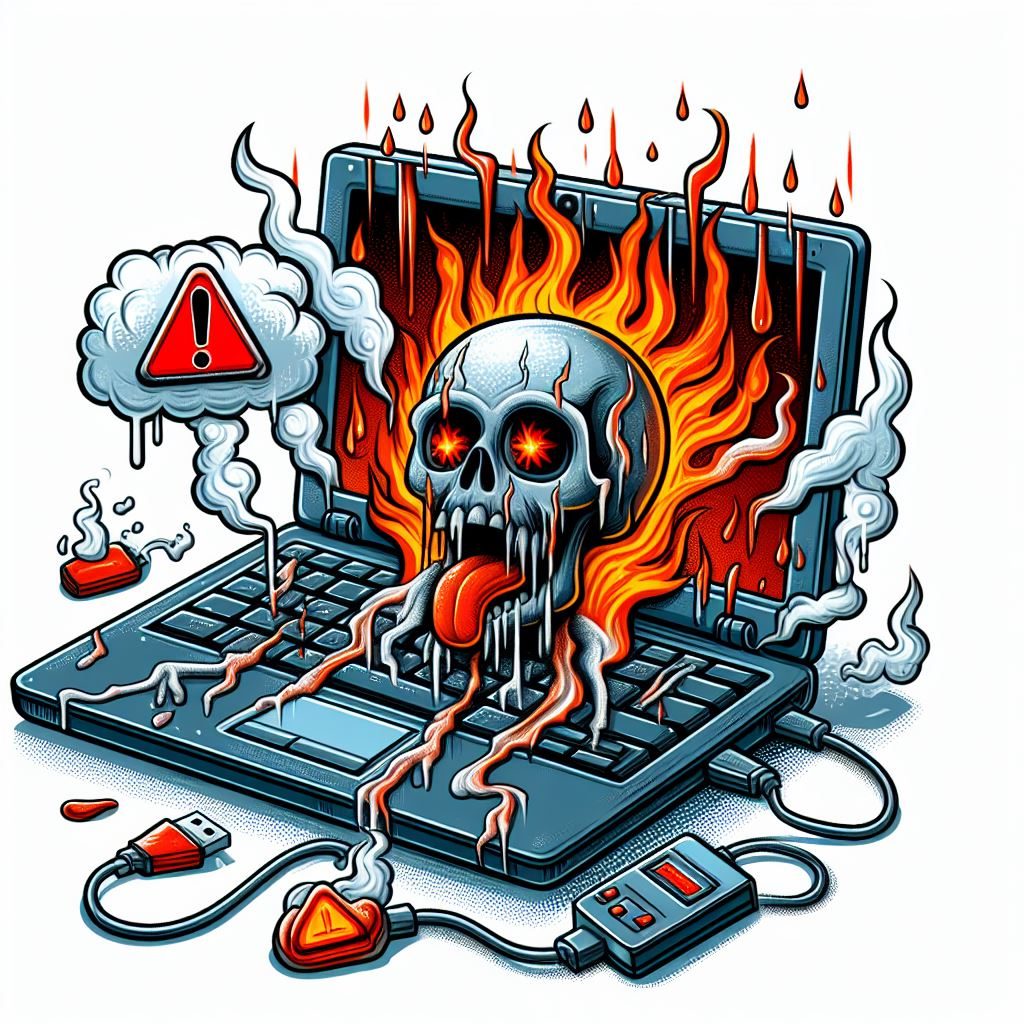Why a Virus Can Cause Laptop Overheating
Laptops rely on efficient cooling systems to maintain optimal temperatures during use. When a laptop overheats, it can lead to performance issues, hardware damage, and even system failure.
One surprising factor that can contribute to overheating is malware, including viruses.
Let’s explore how this happens:
Increased CPU Load: Some viruses affect high-impact processes, causing the CPU to work at maximum capacity.
This increased load generates more heat, pushing the laptop’s temperature higher.
Thermal Throttling: Malware might tweak vital settings, including thermal throttling.
This feature is designed to reduce CPU performance when temperatures rise to prevent overheating. However, if malware interferes with these settings, the laptop may not throttle properly, leading to excessive heat.
Resource Drain: Malware consumes system resources, including CPU cycles. As it runs in the background, it can cause sustained high CPU usage, generating additional heat.
Cryptomining Malware: Cybercriminals create cryptomining malware that hijacks your laptop’s CPU power to mine cryptocurrencies. This process significantly increases CPU load, leading to overheating.
Signs of an Overheating Laptop
The laptop feels uncomfortably hot to touch.
The fan runs constantly and makes strange noises.
Unexpected shutdowns occur due to thermal protection mechanisms.
Error messages or system slowdowns become frequent.
Preventing Overheating
Scan for Malware: Regularly scan your laptop for malware to prevent resource drain and overheating.
Keep Vents Clear: Ensure that air vents are unblocked to allow proper airflow.
Use on Hard Surfaces: Avoid using your laptop on soft surfaces (like pillows) that obstruct airflow.
Monitor Temperatures: Use tools like Core Temp to check CPU temperatures.
Apply Thermal Paste: If your laptop is already overheating, consider reapplying thermal paste to improve heat transfer between the CPU and heatsink.
Remember, addressing malware and maintaining proper cooling practices can help prevent laptop overheating and extend its lifespan.

